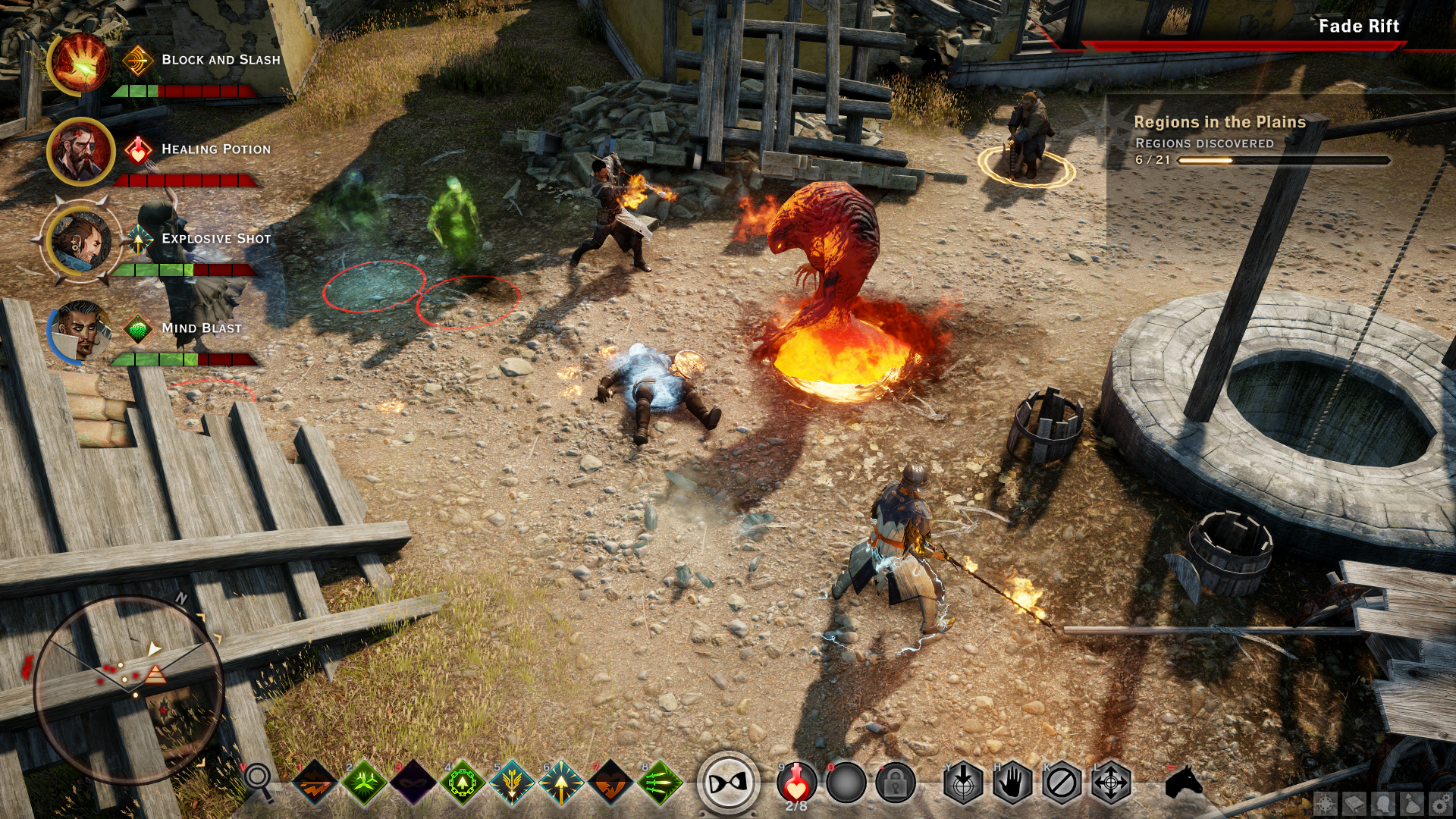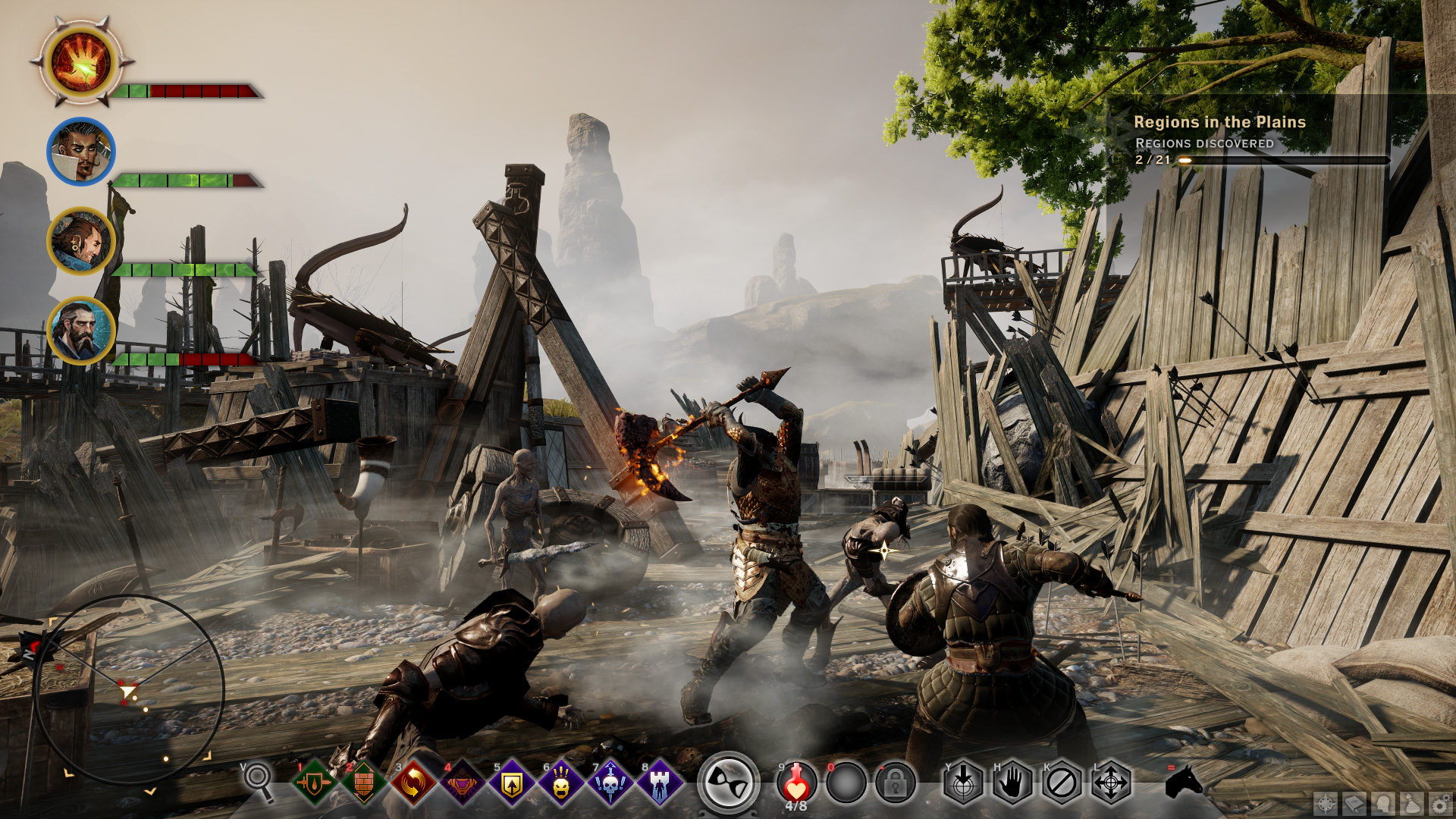This Is What PC Gamers Need For Dragon Age: Inquisition
Over on Origin, Electronic Arts released the minimum and recommended list of specifications for the upcoming game Dragon Age: Inquisition. The highly-anticipated RPG isn’t due to hit store shelves for the Xbox consoles, the PlayStation consoles and Windows PC until November 18 here in the United States, and November 21 in Europe… just in time for the holidays!
“The PC version of Inquisition gives you complete control over the look and feel of the game – a true testament to BioWare's love for PC gaming,” EA’s blog said.
According to the minimum specs, PC gamers will need a 64-bit version of Windows 7 or Windows 8.1, an AMD quad-core CPU @ 2.5 GHz or an Intel quad-core CPU @ 2.0 GHz, 4 GB of RAM, an AMD Radeon HD 4870 GPU or a Nvidia GeForce 8800 GT GPU, 512 GB of VRAM, and 26 GB of hard drive space. DirectX 10 also needs to be installed.
As for the recommended set of specs, gamers will need a 64-bit version of Windows 7 or Windows 8.1, an AMD six-core CPU @ 3.2 GHz or an Intel quad-core CPU @ 3.0 GHz, 8 GB of RAM, an AMD Radeon HD 7870 or R9 270 GPU or a Nvidia GeForce GTX 660 GPU, 2 GB of VRAM and 26 GB of hard drive space. DirectX 11 also needs to be installed.
In addition to the specs, Electronic Arts is reminding Dragon Age fans to pre-purchase the Digital Deluxe edition of the game. For $69.99, this version includes the Flames of the Inquisition armor and armored mount, the Skyhold Throne, the Red Hart Halla, the Bog Unicorn, the game’s digital soundtrack, and bonus digital content.
Electronic Arts has also made Dragon Age: Origins free to own on the company’s Origin digital distribution platform. The blog says that customers don’t need to play through Origins to understand what’s going on in Inquisition. However, it’s a great game and should keep gamers busy until Inquisition does go retail in November. Electronic Arts did not say when this free offering will end.
In addition to the specs, Electronic Arts also provides a hands-on with the RPG in the blog, and several new screenshots, some of which we posted in this article.
Get Tom's Hardware's best news and in-depth reviews, straight to your inbox.
Follow Kevin Parrish @exfileme. Follow us @tomshardware, on Facebook and on Google+.

Kevin Parrish has over a decade of experience as a writer, editor, and product tester. His work focused on computer hardware, networking equipment, smartphones, tablets, gaming consoles, and other internet-connected devices. His work has appeared in Tom's Hardware, Tom's Guide, Maximum PC, Digital Trends, Android Authority, How-To Geek, Lifewire, and others.
-
IInuyasha74 What it isn't locked at 30FPS? You mean it will run at 60FPS or higher? Thats going to make games look so unsmooth and bad unlike the new Assassins Creed and the new Bethesda game.Reply -
sykozis It's amazing that the minimum graphics memory requirement is higher than the recommended.....and by 510GB.... So, where do I find an HD7870 with 512GB of VRam?Reply -
Treynolds416 All jokes aside, this is finally an example of a new game that's doesn't have ridiculous specs for once. No i7, no 6+ gb of vram, it's at least under 40gb in size. I'm hopeful for a port that's actually not trash in terms of optimizationReply -
IInuyasha74 Reply14351392 said:All jokes aside, this is finally an example of a new game that's doesn't have ridiculous specs for once. No i7, no 6+ gb of vram, it's at least under 40gb in size. I'm hopeful for a port that's actually not trash in terms of optimization
That is true and something for us to be thankful for. It terms of the system spec needs it makes a lot more sense than the other games lately, and probably does point to it being a much better port. -
CaedenV Nice! My PC is ready! I don't buy many games when the first come out, but I will likely pick this up shortly after release. Been needing a good RPG fix for a while... I mean it isn't like DA2 scratched that itch... terrible game, I really hope that they make up for it with this.Reply -
StarBound I just hope the game isn't frame locked. Low specs are awesome. Not everyone has a beast of a machine. But it is nice when a dev acknowledges that not all PCs are equal and puts in that special something that pushes boundaries for those of us that can.Reply -
hypertonik Well, I don't know about Electronic Arts but Origin itself says that "Dragon Age: Origins" is going to remain free until October 14th.Reply -
unksol Um EA is Origin? obviously not the one in the game title but...Reply
It is a nice promotion and a great game. If you can deal with EA:Origin. Supposedly the new one will let you play it the "correct" way, OR like DA2. I will wait for reviews. DA2 was playable for $10 but just lazy development.
Still though. They seem to be willing to make it scale down so hopefully they also put in effort to let it scale up too. Not just stop at the limit of what consoles do. Choice of play style is at least promising.

